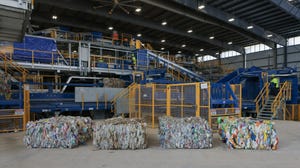In Defense of Legal Loopholes
December 28, 2015
Some people think that lawyers keep a stash of loopholes, selling them as if they were commercial goods off the shelf. When clients contact me, they don’t say, “I’ve run into a rule that upsets my plans. Help me break it.” What I hear is more like, “I want to accomplish X” or “I want to provide Y.” Together, we then work toward their objective. This is not to say that, along the way, I won’t exploit an ambiguity or gap in the law that conveniently boosts the prospects for a client’s success. Indeed, not to do so could amount to professional malpractice.
What I find especially gratifying is when a well-meaning individual stands his ground, battles in court without a lawyer, and ends up a winner . . . thanks to a perfectly sound loophole. Of course, it helps when, as you’ll see here, a forgiving court plays down some technical flaws.
In 2014, a police officer in Hellertown, Pa., observed William Birk removing items from a dumpster located behind a gas station. The officer issued a citation to Birk for violating the Hellertown Code by "collect[ing] waste, without being authorized by the Borough of Hellertown." A magistrate judge found Birk guilty and fined him $100 plus court costs.
Birk appealed to a formal trial court where, as prescribed, the judge conducted a de novo hearing, that is, starting afresh as if the earlier proceeding had not taken place. The police officer again testified and the district attorney submitted photos taken of Birk and his truck. For his part, Birk, serving as his own lawyer, stated that he does not take items from recycling bins, but does remove recyclables that have been improperly disposed of in dumpsters. He further stated that he sometimes collects newspapers, which he puts into containers at his church, and if he finds clothes, he gives them to Goodwill, but he denied conducting a "regular hauling business." Birk conceded that he occasionally keeps things for himself, trades items, or gives items to his son to take to auction.
On cross-examination, Birk testified that he has been retired for over 30 years and receives a pension, but not social security. He denied that he collects items from the trash to supplement his pension. On the contrary, he explained, the items he obtains from dumpster-diving mostly go to local charitable and veterans organizations.
The trial judge found Birk guilty of violating the Hellertown Code based on his admitting that he collected recyclables throughout the borough, thereby depriving the borough of the proceeds. The judge rejected Birk's contention that he was not engaged in business as he admitted deriving some profit from his collection of items.
Birk again appealed, and the case went to the Commonwealth Court—one of Pennsylvania's two statewide intermediate appellate courts—which hears matters involving state and local governments and regulatory agencies. There, he triumphed. The Court overturned the lower court order and dismissed the citation.
At the outset, the state argued that Birk forfeited all of his claims because he failed to strictly comply with court rules governing how litigants must present arguments in their appellate papers. While acknowledging that these rules are mandatory, applying to lawyers and non-lawyers alike, the three-judge panel nevertheless noted that the courts generally cut some slack to “pro se” litigants, that is, parties representing themselves in court without an attorney. “This Court may waive even egregious violations of the appellate rules . . . when it could discern a pro se appellant's argument, or where the interests of justice require it,” the opinion said. Finding Birk’s arguments easy to discern—particularly that the ordinance did not apply to his activities because he was not engaged in a regular hauling business—the panel concluded that a meaningful review was possible despite the technical shortcomings.
Turning to the merits of the citation, the Court began by examining the provisions of the Hellertown Code governing the storage and disposal of municipal waste:
It shall be unlawful for any person, other than such persons as are duly authorized by the Borough of Hellertown, to collect and transport solid waste of any nature as a regular hauling business within or from the Borough of Hellertown. Authorization to engage in such a hauling business shall be given by the Borough of Hellertown. [Emphasis added.]
“The Code's definition of ‘municipal waste,’ which includes ‘solid waste,’ does not include recyclables,” the opinion noted. Moreover, the Code defines "regular" as "[o]ccuring with a frequency of not less than three times within a calendar month." The opinion also cited a standard law dictionary, which defines "business" as: "a commercial enterprise carried on for profit; a particular occupation or employment habitually engaged in for livelihood or gain."
Ultimately, the Court concluded that the evidence failed to prove that Birk's dumpster-diving activities constituted a regular hauling business. “The citation was issued upon a single instance of [the officer] observing collecting items, such as recyclable cans, from a dumpster,” the judges found. “While [Birk] acknowledges that he collects items from the trash and the side of the road, there is no evidence of record that this occurs in the Borough at least three times a month. Further, while Appellant testified that he occasionally sells items, he clearly and distinctly stated that his regular practice is to donate the items he collects to charities and that his activities do not supplement his pension. Thus, the Commonwealth failed to demonstrate that Appellant's activities constitute a business for profit.”
One cannot help but detect a hint of smirking satisfaction in the concluding words of the opinion: “While it is clear that the Borough wished to regulate the business of waste collection and hauling, [Birk] has found a gap in the Code as it does not clearly prohibit his occasional trash-picking activity.”
Commonwealth v. Birk, 328 C.D. 2015, Pa.Commw., Nov. 10. 2015.
About the Author(s)
You May Also Like




